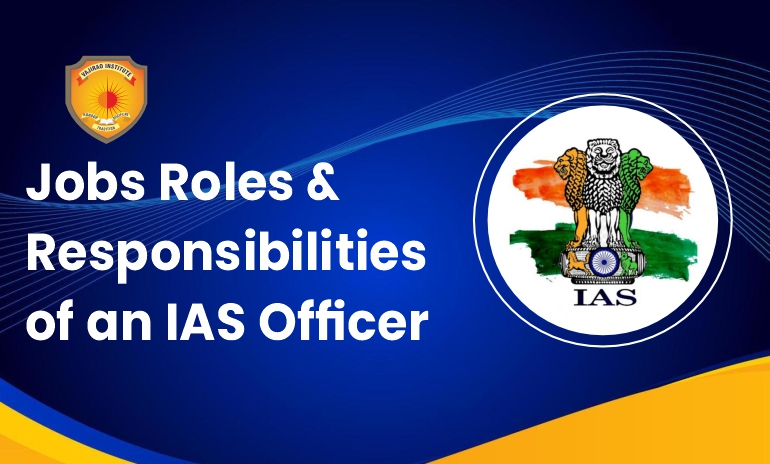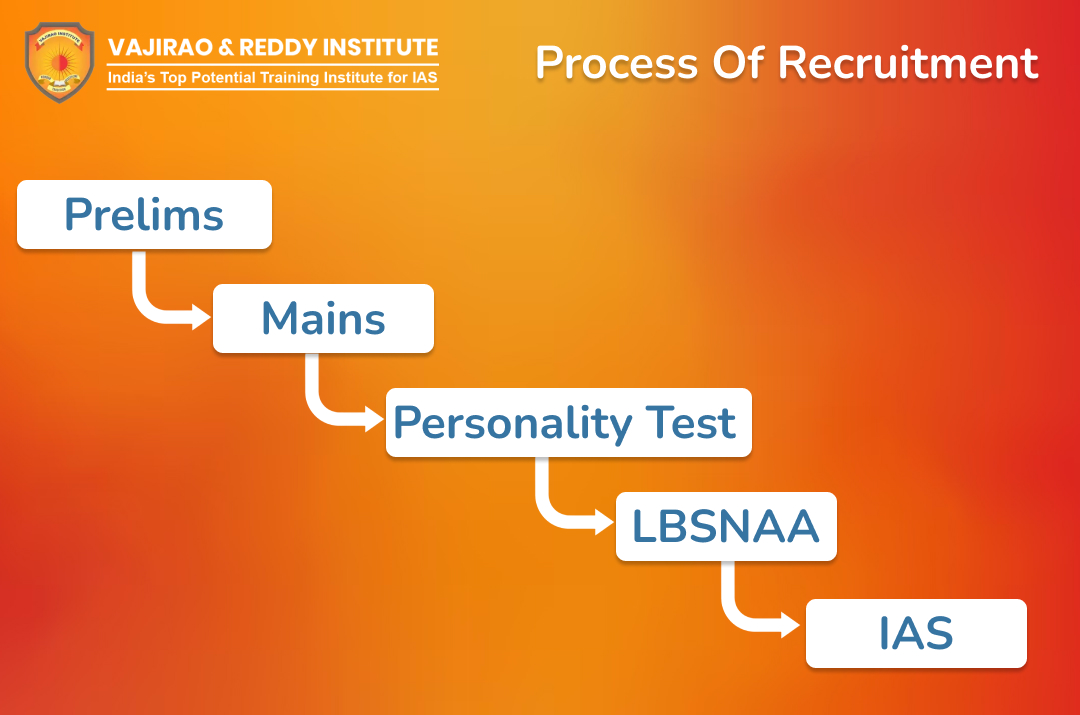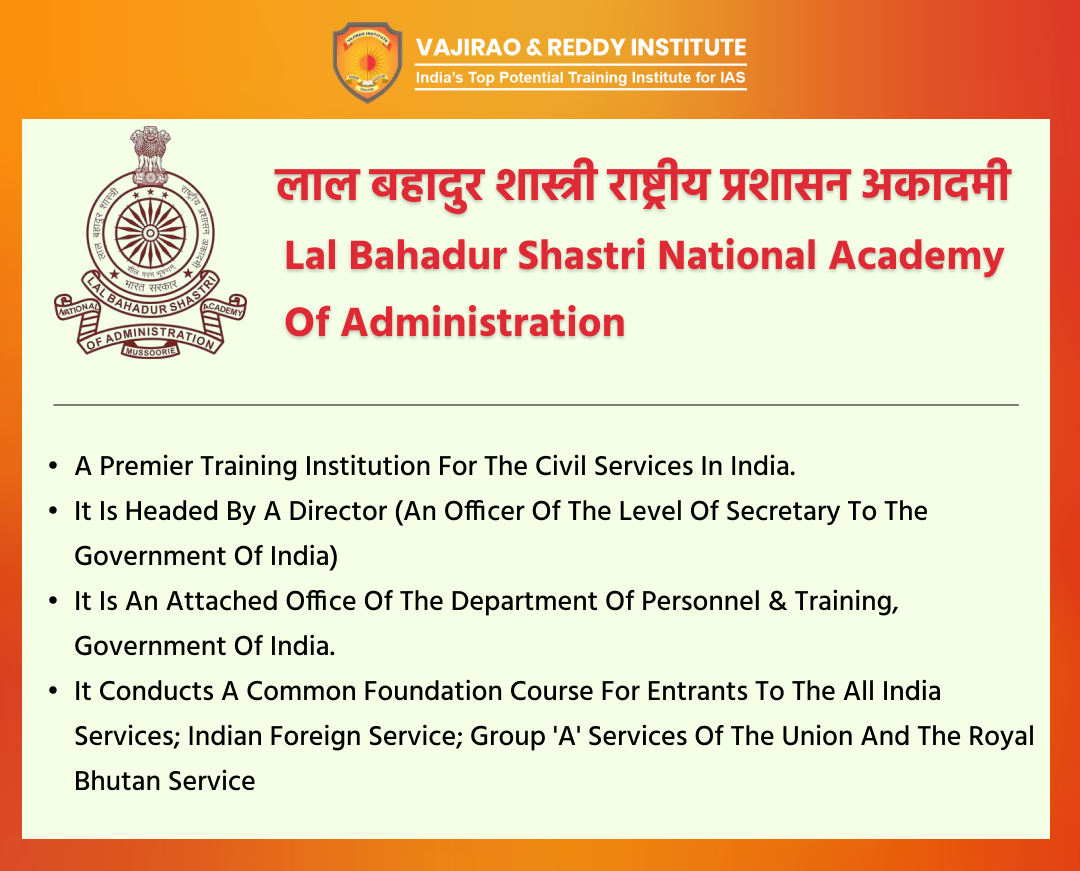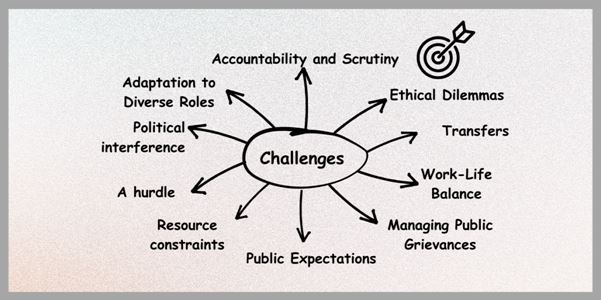
Who is an IAS officer?
IAS officer holds central position in the policy making structure of Indian government and directly looks after the administration of the country.
After clearing the test like the UPSC Civil Services Examination, the IAS officers possess a large level of power and participate in sectors like finance, education, and healthcare. They take part in policy making, administration, and enforcing laws and order within the society. They function in such capacities as management of district issues, and attending to the ministers while supervising the execution of government plans. For instance, IAS officers are usually devoted to working for the public interest while they are often quite effective in terms of introducing positive change in the society. Consequently, what they do will catalyse the growth and well-being
of the nation in different capacities.
How are IAS officials recruited?
The process of recruiting IAS officers is time consuming as well as an extensive process. They are recruited through the UPCS CSE
conducted by the Union Public Service Commission.

INDIAN ADMINISTRATIVE SERVICES
Indian Administrative Services is amongst the critical services of India’s administration,
forming the backbone of the administration of the country. Formally created in 1946, the IAS is one of the three All
India Services which also include the Indian Police Service (IPS) and the Indian Forest Service (IFoS).
IAS officers are appointed through the extremely competitive UPSC Civil Services Examination, which evaluates the applicants’
knowledge, reasoning, and character.
Consequently, IAS officials are involved in policy formulation, policy execution, and governance. It is their responsibility to enforce law and order, oversee development processes and ensure the productivity of the various governmental bodies. Some of their functions include managing district’s affairs in their capacity as District Magistrates; advising ministers; and supervising other government departments and ministries.

India’s administrative service officers attend the Lal
Bahadur Shastri National Academy of Administration (LBSNAA) situated in Mussoorie, to acquire knowledge,
skills, and expertise needed in their offices.
Duties of an IAS officer
Policy formulation:The roles of an IAS officer are huge and central to the proper government and management of the nation. Governmental commitments as IAS personnel are responsible of implementing such policies, maintaining discipline, upholding law and order and ensuring appropriate functionality of all the administrative frameworks within the given society.
Policy Implementation:It would therefore be pertinent to state that policy implementation is one of the major roles of an IAS officer. Their main functions include the coordination of policies set by the federal and state governments in the overall implementation of polices on the ground. This entails coordination with the other departments, resource management, and handling of challenges that might arise during the exercise of the strategy.
Maintain Law and order:It is widely known that IAS officers especially the junior more specifically those posted to district administration hold the post of a District Magistrate or Collector. They uphold law and order in their regions, handle crises, and use measures to expel conflicts. They also oversee the police and other law enforcement agencies that help in the prevention of lawlessness.
Revenue Administration:Revenue Administration:Besides these, the main responsibilities of IAS officers also include functioning in the revenue administration. It includes government related operations such as revenue assessment, for example, taxes, customs etc. They also act as revenue courts dealing with cases relative to land and property.
Administration:Civil servants particularly IAS officers have major role in progressive administration. They oversee the management of distinct development programmes and plans that exist for the purpose of improving structures, health facilities, schools, and social programs. They act as the Chief Development Officers or District Development Commissioners they translate government policies and make sure they get to the rightful beneficiaries or partakers of development projects while at the same time overseeing that part of the country’s development.
Finance:Another responsibility is managing the financial of the government. IAS officers are directly responsible for spending the public fund with the consideration of the need to uphold high standards of integrity in financial matters. Budget preparation, finance, and the sound usage of money provided to various projects, schemes rest on them.
They provide valuable data depending on their years of practice as well as specialization and help in the formulation of policies and decisions at the government’s highest level.
Powers of an IAS Officer
- IAS officers are in possession of a lot of powers that ensures that they enhance and implement various government activities.
- The civil servants are in charge of the government policies and look over that these policies are properly put into practice in an organizations operational level.
- IAS members has the right of handling matters concerning government and its structures, they make decisions that shape the governance and physical aspects of the country.
- In natural and man-made disasters, the first orders to regulate the situation and comprise relief and public safety measures are introduced by IAS officers.
- They also contribute to the provision of law and order to the society and working hand in hand with the police.
- The importance of these organizations lies in the fact that they possess rather vast authorities and a wide range of tasks that focus on the management and further growth of the country.
Salary, allowance and Perks
IAS officers are paid a fairly good salary that comes along with other allowances and bonuses. The pay scale for a fresh IAS officer from first level of pay matrix ₹56,100/-and for the Cabinet Secretary of India up to ₹2,50,000/ is granted on monthly basis.
Allowances include:
- Travel Allowance (TA): This is for the purpose of the base rate increase employees receive.
- Travel Allowance (TA): Given if government housing is a non-option.
- Travel Allowance (TA): this is provided for the travelling expenditure done for the official work.
In addition these officers gets variety of benefits, including:
- Official Residence:Mega structure which was specially designed to accommodate an emergency use office as well as residence.
- Official Vehicle: With a driver for, official purposes only.
- Medical Benefits: Primary health care, secondary care, tertiary care, dental care and all hospitalization expenses.
- Telephone and Internet bills: Other expenses such as the communication expenses which includes calls, text messages and any other related expenses within the premises during the project.
- Security: Security for key personalities in the organizations.
Challenges faced By IAS officers
IAS officials face several challenges in their capacities. Challenges may include:
- Political interference: Political influence and conflict of interest are two common
experiences of IAS officers mainly due to their dealings with political officials who are mostly in conflict with administrative personnel.
- Transfers: the transfersmay happen several times a year thus; these shifts may significantly affect officers’ private and working lives.
- A hurdle:Confronting various contextual factors means that business and administrative procedures entail complicated bureaucratic
processes that could slow the decision-making process and policymaking.

- Public Expectations: The public expects a lot from IAS officers since they are seen as reformist.
- Work-Life Balance: Requirements to work, high responsibility, constant readiness to work can affect private life and one’s health.
- Accountability and Scrutiny: IAS officers are supposed to be very truthful, and they are held very much responsible. That is why any attempts or allegations of misconduct could potentially have severe implications for their careers.
- Resource constraints: The IAS officers often work under a constrained environment in terms of resources which may pose a challenge for proper implementation of programs and policies proposed.
- Adaptation to Diverse Roles: The IAS officers are supposed to implement several governmental activities; they include policy implementation, maintaining law and order in the country.
- Managing Public Grievances: Grievance redressal is also one of the duties that the IAS officer has to perform for the public. Managing and accomplishing all of these on one hand and the administrative functions on the other are quite challenging.
- Ethical Dilemmas: This means that, often, IAS officers locate themselves in scenarios where ethical considerations meet bureaucracy’s constraints, the former often blurring the latter; a move that complicates choices.
Mega-pressure from the politics is a common feature that these IAS officials go through in their entire career often reflecting on their decision as well as the ‘administrative functions’. To deal with this, they use many strategies:
- Adherence to Rules and Regulations: IAS officers take decisions that are legally correct and which are formulated in accordance with the laid down legal procedures. This enables them to be as independent as they can and not be influenced politically as well much.
- Creating Strong Relationships: IAS officers should develop good working relations with political authorities in order to gain their support and coordination in the cause of implementing policies.
- Transparency and Accountability:Being operationally and politically neutral, the IAS officers should follow the above-discussed methods to avoid intervention from the political parties and also gain people’s confidence.